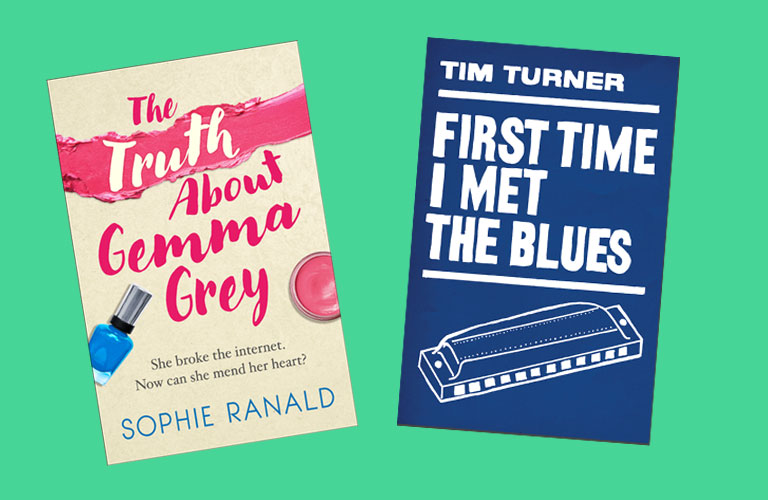
For many journalists, writing a novel is a life-long aspiration that seems just slightly out of reach. But not for Content Director Tim Turner and Editor Sophie Mackenzie (who writes under the pen name Sophie Ranald) who have successfully written eight books between them.
Lured by their deep-rooted passion for fiction, Tim and Sophie have added nearly one million words to their literary portfolios. But just how do they go about it?
What initially inspired you to write a book?
Sophie Mackenzie (SM): Writing a novel was always something that I’d wanted to do but the royal wedding in 2011 inspired my first book. All eyes were on Kate and Pippa Middleton, and I asked myself, what if there were two sisters who were very different in terms of their social ambitions.
Tim Turner (TT): I’d wanted to write a novel since I was a teenager and used to write short stories, which progressed to poetry over time. However, after 10 years, I wanted to challenge myself so I began writing a novel.
How did you decide on the premise/characters?
TT: For me, it was a question of asking ‘what would happen if someone like this did something like that?’ There’s a famous French novel called Le Grand Meaulnes, which translates to The Wanderer in English. After reading the book, I got thinking about what would happen if the descendants of the main characters met in modern-day London. This gave me the inspiration for my first book.
SM: I agree with Tim – the starting point is usually a “what if…?” and the characters come from that. Then, for me, it’s a case of applying the ‘headlight method’, which means you know where you’re going, but exactly how you get there becomes clear as you go along. This made sense to me because that’s how I instinctively write.
What technology do you use to help?
TT: I used to just write in Microsoft Word, but for the novel I’m currently working on, I’m using a program called StoryMill that helps to keep track of characters, scenes and word counts, which is really helpful to monitor progress and keep me focused.
SM: Writing is hard! As Dorothy Parker said, “I hate writing. I love having written.” But using software that allows you to write scenes and move them around really helped me – I work in Scrivener.
What was the biggest learning curve?
SM: As a self-published author, learning how to market my books and getting over my reluctance to market myself was probably the biggest learning curve. My journalistic background meant the research requirements and need for 100% accuracy were second nature, but understanding how to target an audience was a new skill to learn.
TT: I really enjoy working out the detail of any book, but when it came to reviewing my own first novel, I realised that I’d included too many characters, which I thought would be off-putting for readers. I had to go back through my work, remove a few characters and give their actions to more important ones.
What’s the best piece of advice you’ve been given?
SM: I went to hear crime writer Lee Child give a reading and he spoke about how people often commended him on his precision and detail, which they assumed must be the result of his father or equivalent being in the military. However, Lee explained that he had no direct contact with anyone in the military and that a novel doesn’t need to be accurate, just convincing. That really stuck with me.
TT: Learning to trust your own judgement is an important skill. For my first novel, I asked friends for their opinions and felt obliged to take their comments on board. However, by the time I’d written my second book, I’d learned to say no if I didn’t agree with their comments. After all, it was my book and I knew what I wanted to say. For me, I feel that it’s important to write what you want to write, rather than just what an audience wants to read.
Has working at Wardour helped you to write your books?
SM: Being surrounded by so many ideas and different sources of inspiration every day has helped me progress my books. Being constantly exposed to lots of ideas is a real bonus.
TT: Wardour has benefited me in a different way. I place emphasis on attention to detail during the day, so being able to completely imagine a scenario and make things up within my writing is a contrast to my work and something that I really enjoy.
What happens when a book ends?
TT: In some ways it’s a relief, even though you’ve got to know your characters so well. But hopefully, by the time you’ve finished, you’ve got a great idea for the next book and a whole new set of characters to invent.
SM: I miss my characters once a book is complete. I think about them frequently and often consider how real-life situations would affect them.
Will we see more from you?
SM: I’ve completed the first draft of my sixth novel. It’s the second in a series of four books.
TT: I’ve just finished the first draft of my fourth novel – although I’m not sure on the release date yet.
To find out more, or to buy a book you can find Tim’s here or Sophie’s here!
Related insights articles
Stay ahead of the curve
Sign up to our emails

